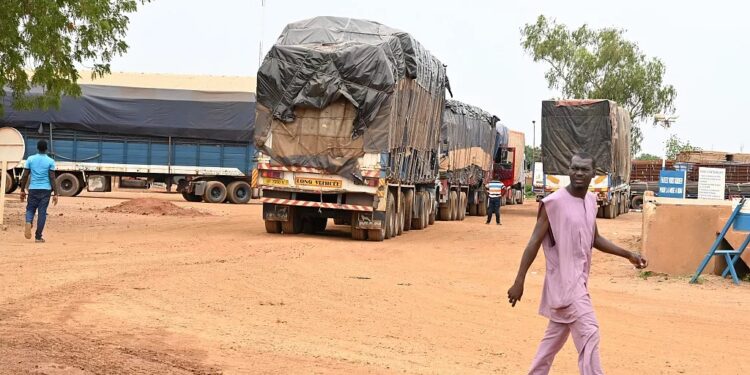By Ebi Kesiena
According to a report from a regional customs official, around 300 trucks of food and other materials crossed into Niger from Burkina Faso, with many arriving in the capital, Niamey.
The convoy of trucks departed from Burkina Faso, the last open border with Niger since the West African regional bloc imposed sanctions after mutinous soldiers overthrew the country’s president last month.
But the route between Burkina Faso and Niger is lined with jihadist groups, making it dangerous to drive and requiring military escorts from both armies.
Heritage Times HT recalls that UNICEF estimated that around 1.5 million children under the age of 5 were already suffering from malnutrition in Niger. Among them, at least 430,000 were experiencing the most severe form of malnutrition, which is life-threatening.
Colonel Adamou Zaroumeye, the regional director of customs, confirmed the arrival of the convoy in Niamey.
He noted that the trucks, originating from Burkina Faso, bear a cargo predominantly consisting of food products such as salt and maize, along with household necessities.
Zaroumeye characterized this influx of goods as a much-needed relief, aptly describing it as a “breath of fresh air” for the people of Niger.
Niger’s coup was seen by the international community and ECOWAS as one too many and in addition to threatening a military invasion, the bloc has imposed severe economic and travel sanctions.
In the first six months of 2023, attacks on civilians were 49% lower than in the first six months of 2022, and the number of deaths 16% lower, according to an NGO, which records the victims of conflicts around the world.
Western observers and partners, notably France, a privileged ally of the ousted regime which still has 1,500 troops in Niger, have highlighted these encouraging results.
However, amidst this challenging environment, the armed forces of Burkina Faso and Niger jointly ensured the secure passage of the convoy.




































